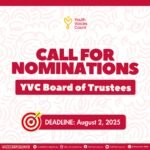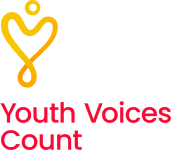Patriarchy is extremely deep-rooted in societies all around the world. India is no exception to this rule. In a society built on patriarchy, the concerns regarding gender identity can be quite extreme as cultural and colonial implications act as a wall towards self-identity and acceptance.
Satvik Sharma is an activist based in New Delhi, India, and works to promote the rights and visibility of transgender men in India. Satvik is a transgender man and believes that the lack of attention on transmen is a considerable barrier to intersectional equality on a wider spectrum. Satvik completed his MBA from Doon Business School, and after his graduation, he has worked as a soft skills trainer for Udayan Care. In addition, Satvik was a participant in the Queer Youth Leadership Course 2020, part of the Keshav Suri Fellowship Program supported by the Canadian Consulate in Mumbai.
Satvik is currently working for the Transgender Welfare Equity and Empowerment Trust (TWEET) Foundation as the Program Manager. The foundation is a registered body under the Mumbai Charity Commissioner led by seven trans activists. Their work circles around the welfare of trans persons: their education, medical treatment, legal standing, and cultural and social upliftment.
Satvik is also one of the co-founders of the Transmen Collective, which is a New Delhi based group responsible for providing safe spaces for transmen for networking, information gathering and transition support. The Transmen Collective is a community-based organisation led by three core members and ten volunteers based in New Delhi and was formed in September 2017 to create safe spaces for Transmen in the capital city. The collective is a combined effort of some accumulative ideas and ideologies to connect people and bring the limelight around the issues of the LGBTIQ minorities and support their empowerment.
As the issues of the transmasculine community are mostly limited to transitioning, wherein the other social, mental, emotional factors fail to get highlighted during the entire journey, the Collective has started to work on it. Their overall idea of empowerment is not only limited to transition but growth and development throughout their life. They have collaborated with various other organisations like Nazariya QRFG, YP Foundation for a consultation program that was established to discuss the Transgender Bill in 2017. They have also collaborated with Safe Access, Tweet Foundation, and PeriFerry for many community campaigns and events. They organise various online and offline events, including movie screenings and sports-based activities.
Since the start of the pandemic, transgender people had to cope with different challenges, such as limited access to hospital facilities, disruption to HIV and other services, including hormone therapy, unemployment and lockdowns. Satvik has been providing monetary support to key affected populations to rent accommodations and pay transportation to access health facilities. In addition, along with the TWEET Foundation, he has been reaching out to several organisations that work on diversity and inclusion, such as Amazon, HP and Godrej, to provide jobs for members of the affected communities. “The trans community do not lack skills in obtaining employment, but most workplaces do not contain basic infrastructures like gender-neutral that have washrooms and inclusive environments to work in,” says Satvik. “Due to this, transgender people quit their jobs because of constant stigma and discrimination and misgendering”, he added.
A joint project to develop shelter homes for transgender people in India was started by the Indian government and is called Garima(dignity) Greh(home). This project was spread out over ten cities in India. Along with TWEET Foundation, Satvik is expected to handle the overseeing of the shelter home in Mumbai starting at the end of May 2021. They have also raised funds and secured a shelter home in Delhi exclusively for transgender men. The shelter provides food, a safe place for people going through domestic crises or running away from home. They also offer services such as mental health support and counselling for people in distress. Trans individuals who travel to Delhi for medical support also end up finding refuge within this shelter home.
On another front, the TWEET Foundation has collected reliable and accurate data and information on sensitized doctors, including endocrinologists and psychiatrists, who provide transgender-friendly healthcare services, such as gender reassignment surgeries and hysterectomies. The TWEET Foundation website contains information along with reviews of each doctor to increase reliability.
As one of the co-founders of the Transmen Collective. He and his colleagues help transgender men who are going through personal issues and act as an intermediary in providing them access to resources and organisations which will help cater to their needs. They also raise awareness and visibility by promoting fundraising events through their Instagram handle:
Many social media influencers with high followings, such as Dr Trinetra Haldar Gummaraju and Gaysi, also help promote the work of the Transmen Collective.





The COVID-19 vaccine shortage in India is taking a huge toll on the community’s mental and physical health. To ensure prompt access to information and mental health support, Satvik answers questions about the COVID-19 vaccine and hormone therapy or any other health concern by consulting with endocrinologists. In addition, transgender people often encounter problems whilst accessing healthcare services at hospitals and clinics because their assigned gender at birth does not match their identity cards.
Satvik emphasises the technical gap within his community and how the transfer from offline to online platforms deeply affects most of their ongoing work. One of the main challenges is the lack of digital literacy and isolation. However, Satvik believes that the virtual space comes with positive aspects. For example, it has given him the chance to reach out to wider audiences to get involved from the comfort of his own home. He makes sure that all of his online work is intersected by including trans people with disabilities, special needs, other trans men who fall within dimensions of race, caste, religion and other trans minorities.
He also recognises that while many jobs necessarily rely on physical presence, he says, “I am blessed that I am working from home, most people do not get this, this is a privilege”.
“As the idea of being a man comes from the cisgender world, this hegemonic “man” portrays toxic masculinity. Unfortunately, this has also become the ideal for many trans men, which is how patriarchy affects minorities within minorities in identifying who they are.”
Satvik is committed to working towards bringing visibility to the voices of the unheard and underrepresented. His work around transgender men and the discrimination they face gives hope and courage for more trans activists to come forward and raise their voices. He encourages communities to refuse tokenistic approaches and to promote fair and healthy representations. Satvik has been vocal for the rights of LGBTQ individuals for over four years and continues to work in shaping an inclusive and equal society for all.










